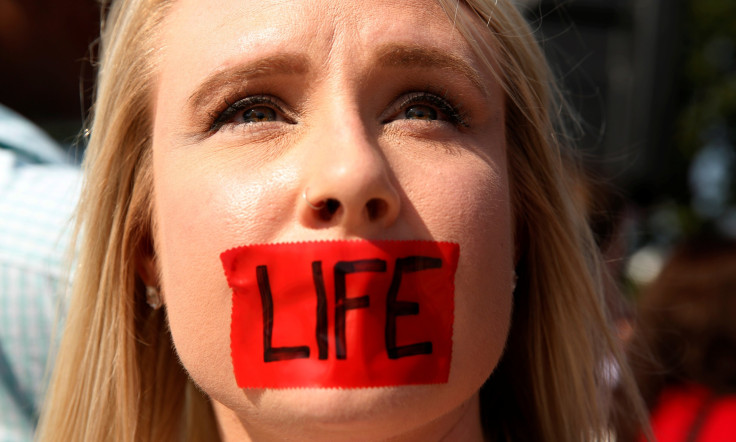Abortion Update: Some States Want Burials For Fetuses

Texas is not the only state where such questions are going through the legal system. The issue is part of a larger debate, with similar cases ongoing in Louisiana and Indiana as well. And in the past few years, as many as five states have introduced regulations that require burials for fetal remains. The rules have recently taken effect in Arkansas and North Carolina.
The new regulations are an overhaul of the existing rules regarding disposing of bio-medical waste that mandates most hospitals and abortion clinics around the country to incinerate fetal remains or dispose of them in landfills after having treated them through a sterilization process. Many of the facilities employ the services of third parties that specialize in incineration of bio-medical waste.
But medical practitioners disagree with the proposed changes that are supported by pro-life groups such as Washington-based Americans United for Life which said its proposals are aimed at “showing respect to human beings who have died before birth, no matter how that came about, by abortion, miscarriage or stillbirth,” according to an email sent to the Los Angeles Times.
“There is no health justification for creating a new system to handle tissue from certain medical procedures differently than from others… Every time you create a new and parallel system, it raises expenses, it raises complications, and it raises the potential for confusion or mistakes,” David Brown, a senior staff attorney at the Center for Reproductive Rights in New York told the Los Angeles Times.
Since Texas proposed the new rules in 2013, as many as half of the state’s 41 abortion clinics have already closed down, suggesting a link to the proposals. A court ruling in June 2016 also said these provisions place an “undue burden” on women seeking abortions.
Brown, who is representing the plaintiffs in the current Texas lawsuit, suggests that such form of legislations is a worrying trend. “It’s the same kind of strategy, tying abortion providers to medically unnecessary relationships with third parties,” said Brown.
© Copyright IBTimes 2025. All rights reserved.






















